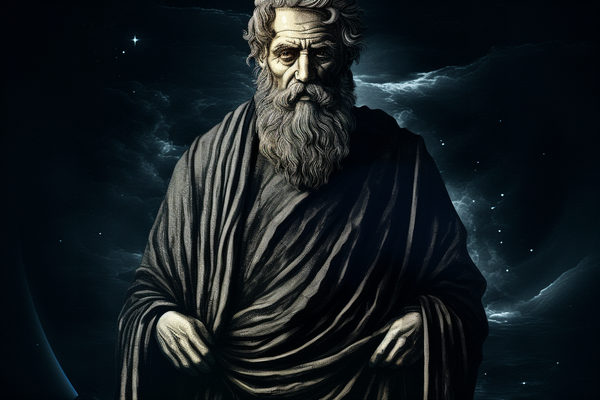An Introduction to the Yazidi Religion

The Yazidi religion is primarily practised by the Kurdish-speaking Yazidi people. With ancient Mesopotamian origins, Yazidism combines theocentric and cosmological narratives, deeply influenced by regional religions including Zoroastrianism, Islam, Christianity, and ancient Mesopotamian polytheism. It is considered one of the oldest and most enigmatic monotheistic religions still practised today.
Cosmology and Theology
At the heart of Yazidism lies a monotheistic belief in a single, transcendent God. This supreme deity is referred to as ‘Xwedê’ in the Kurmanji language. According to Yazidi cosmology, God manifested the world through a pearl and delegated its stewardship to seven Holy Beings, or Angels, known collectively as the ‘Heft Sirr’ (Seven Mysteries). These beings serve to maintain the cosmos and to mediate between the divine and humanity.
The Seven Holy Beings (Heft Sirr)
In the heart of Yazidi theology lies the Heft Sirr, or the Seven Mysteries, which are the seven holy beings or angels. These beings are paramount to the Yazidi faith as they are seen as the executors of the divine will and the sustainers of the universe.
- Tawûsê Melek (Melek Taus) - The primary angel, Melek Taus or the Peacock Angel, is considered the leader of the archangels and the chief conduit of divine will. The Peacock Angel is associated with the planet Venus. In Yazidi scripture, Melek Taus is entrusted with authority over the world after he refuses to bow to Adam, thereby passing a divine test. This narrative diverges significantly from the Judeo-Christian and Islamic tales of a rebellious or fallen angel. As a result, outsiders often equate him with the Islamic Iblis or the Christian Satan.
- Şêx Hasan - Known for his wisdom, Şêx Hasan is seen as an illuminator of truth and an angel of insight, guiding the faithful in understanding the deeper layers of their faith.
- Şêx Shams - The angel Şêx Shams is associated with the sun and is often invoked for guidance and enlightenment. He brings clarity and is considered a source of knowledge.
- Abû Bakir - Abû Bakir is seen as the angel of productivity and fertility. He is often called upon to ensure the prosperity of the Yazidi people and the fertility of the earth.
- Şêx Obaid - The guardian of Yazidi faith, Şêx Obaid is the angel responsible for protecting the community from external threats and maintaining the sanctity of their religious practices.
- Şêx Musafir - As the name suggests, Şêx Musafir is the patron of travellers and pilgrims, safeguarding those who venture on spiritual journeys or who seek the truth across the lands.
- Şêx Fakhradin - The final holy being, Şêx Fakhradin, plays a role in the administration of divine justice. He is called upon in matters of law and ethics within the Yazidi community.
Each of these holy beings plays a vital role in the Yazidi cosmology, overseeing different aspects of both the divine and the mundane worlds.
Sacred Texts and Divine Revelation
Yazidi sacred literature comprises primarily of two texts: the Kitêba Cilwe, which details divine revelation, and the Mishefa Reş, which includes the creation story, precepts for conduct, and the religious history of the Yazidis. These texts are written in the Kurmanji dialect and are considered the word of God as transmitted through Sheikh Adi ibn Musafir, a central figure revered as a saint and reformer in the Yazidi faith.
Kitêba Cilwe (Book of Revelation)
The "Kitêba Cilwe," or "Book of Revelation," is one of the sacred texts of the Yazidis. This book is considered a direct revelation from God, containing the core narratives of the Yazidi faith, including the creation of the world and the divine instructions given to humanity. It provides the framework for understanding the role and significance of the Heft Sirr in the cosmic order and guides the religious rituals and practices that define Yazidi life. The Kitêba Cilwe is not widely published and is typically passed down through oral tradition, with only a few written copies kept by religious authorities.
Mishefa Reş (Black Book)
The "Mishefa Reş," translated as the "Black Book," complements the Kitêba Cilwe by elaborating on the Yazidi creation myth, the role of Melek Taus, and the historical narratives central to the faith. It is a compilation of religious laws, moral precepts, and societal norms. The Black Book also outlines the Yazidi caste system, detailing the duties and responsibilities of the Sheikhs, Pirs, and Murids. Like the Kitêba Cilwe, the Mishefa Reş is considered a sacred text, with its teachings deeply embedded in Yazidi daily life and spirituality.
Religious Caste and Clergy
Yazidism is organized into a religious caste system, pivotal for maintaining religious and social order. The Sheikhs and Pirs form the clergy, presiding over religious ceremonies and providing guidance. Murids, the laity, owe allegiance to their spiritual guides. Heredity largely determines one’s position within this hierarchy.
Practices, Rituals, and Taboos
Daily life for Yazidis is marked by numerous practices and taboos designed to maintain the purity of the community. These include prohibitions on eating forbidden foods, marrying outside the faith, and converting to or from Yazidism. Prayer is performed facing the sun at dawn, noon, and sunset, symbolizing the divine light of God.
Yazidi festivals include the New Year celebration known as Sere Sal, which coincides with the spring equinox, and the Feast of the Assembly, held in Lalish, the spiritual heartland of the Yazidi people. Pilgrimages to Lalish involve ceremonial washing in the sacred river, tying of coloured cloths to shrines as a form of prayer, and participation in communal rituals that affirm their beliefs and identity.
Reincarnation and Afterlife
The Yazidi doctrine of reincarnation is pivotal, affirming that the soul undergoes successive rebirths, which could be as humans or, as a form of punishment, as members of other species. The end goal is the purification of the soul, culminating in its union with God. The belief in reincarnation underscores the moral and ethical dimensions of the Yazidi faith, with personal conduct in life affecting one's spiritual journey across lifetimes.





